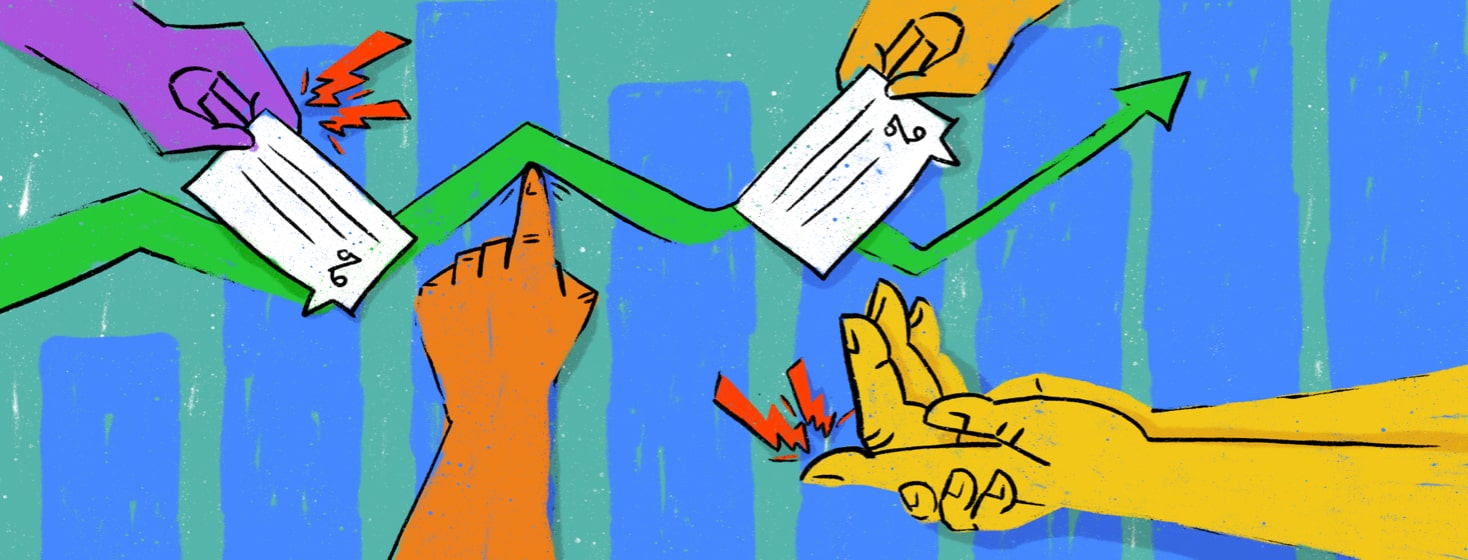Community Experiences Managing Neuropathy
People living with lung cancer can also experience peripheral neuropathy or nerve damage. Neuropathy can be painful with symptoms that feel like burning, tingling, and numbness.1
Neuropathy can be caused by the cancer itself, cancer treatment, or another medical condition. Results from our 4th Annual Lung Cancer In America survey show that neuropathy is common. Nearly 1 out of every 3 respondents said they have experienced neuropathy as a symptom or side effect.
It is no surprise that neuropathy can bring many challenges. To learn more about the treatments and coping strategies our community members are using, we turned to followers of our Facebook page and asked them to share how they live with and manage neuropathy.*
Managing and treating neuropathy
Diagnosing neuropathy and starting treatment as soon as symptoms are noticed can help prevent further damage, reduce pain, and keep symptoms under control. Knowing the cause of neuropathy can help determine the best way to treat symptoms.1
If the neuropathy is caused by a current cancer treatment, changing the type or dosage of the treatment may help. Other options to manage neuropathy include medicines, vitamins or supplements, exercise, therapy, diet changes, and complementary or integrative medicine.4
Treating neuropathy with medicine
“It was rough for a couple of months until the doctor gave me gabapentin. That has helped tremendously.”
There are different types of medicines that can be used to treat neuropathy symptoms. Community members said they have found success using gabapentin. This is a drug that is used to treat seizures and pain. Amitriptyline, an antidepressant, has also helped community members with their neuropathy pain. Some common types of drugs used to treat neuropathic pain include:2
- Antidepressants, such as amitriptyline, doxepin, nortriptyline
- Seizure drugs, such as gabapentin and Lyrica® (pregabalin)
- Steroids and opioids
Treating neuropathy with vitamins and supplements
“When I was doing chemo, one of the nurses told me to use B-6. I take MSM and turmeric curcumin.”
Some community members have found symptom and pain relief by taking vitamins and supplements. B-vitamins can help support a healthy nervous system and may help relieve neuropathy pain.2
Curcumin, an active ingredient in turmeric, may help with neuropathy pain, numbness, and tingling. Vitamins and supplements that may help with neuropathy include:3
- Vitamin B-1, B-6, and B-12
- Curcumin
- Glutamine
- Magnesium
- Methylsulfonylmethane (MSM)
- Acetyl-L-carnitine
Before taking any vitamins or supplements, talk with your doctor about whether they are safe for you.
Exercise and therapy for neuropathy relief
“The movements from my physiotherapist have helped. I also do the free classes ‘Yoga for Cancer with Vicky Fox,’ and she focuses on movements to help with neuropathy.”
Regular exercise and physical therapy can help improve blood circulation while strengthening muscles and improving balance in those who have neuropathy.4
Community members said they have found symptom improvement and pain reduction through physical therapy, yoga, walking, and aquatic therapy. Exercise and therapy to improve neuropathy symptoms include:4
- Regular exercise
- Walking
- Physical therapy
- Occupational therapy
- Aquatic therapy
- Yoga
- Balance training
- Strength training
Neuropathy relief with a balanced diet
High blood sugar and elevated fat levels can affect and damage nerves. Reducing blood sugar and cholesterol levels can help keep neuropathy from getting worse. Alcohol can damage nerves, so limiting or avoiding alcohol can also help preserve nerve tissue.5
Complementary and integrative medicine for neuropathy
“I keep my feet elevated as much as possible and wear compression stockings.”
“Acupuncture got totally rid of mine”
Most community members said they have found neuropathy pain and symptom relief through complementary and integrative medicine. Simple at-home remedies like taking a bath with Epsom salts, using essential oils, and wearing compression socks helped many with symptoms.
Community members also said acupuncture and cannabis or CBD oil have helped with pain. Complementary treatments used for neuropathy include:
- Acupuncture
- Elevating feet
- Wearing compression socks or gloves
- Using a TENS machine (a device that sends electrical pulses to targeted areas in the body)
- Cannabis
- CBD oil
- Essential oils like lavender and rosemary
- Epsom salts
Managing neuropathy by reducing risk
Another way people living with neuropathy can manage symptoms and prevent further damage is by reducing risk. Some simple strategies to reduce injury include:1-3
- Wearing shoes to improve balance and protect feet
- Removing clutter and area rugs to prevent trips and falls
- Use a handrail and bathmat in the shower or tub
- Use a nightlight
- Use assistive devices like a cane or walker
*Comments from community members are based on personal preference and experience and have been edited for clarity.
The 4th Annual Lung Cancer In America survey was held online from January through June 2020. The survey was completed by 804 people.

Join the conversation